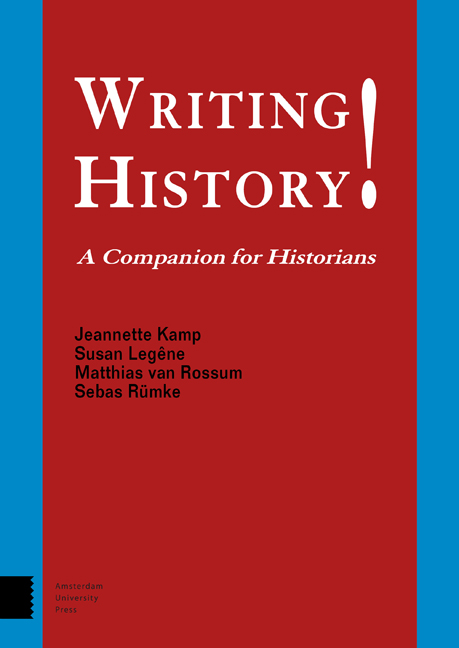Book contents
- Frontmatter
- Contents
- Introduction
- Structure of the Book
- 1 Historical Research: The Importance of the Research Question
- 2 The Building Blocks of the Historical Method
- 3 Applying the Historical Method
- 4 Writing History: Narrative and Argument
- 5 Presentation and Historical Debate
- 6 A Historian – Now What?
- Appendices
- I Guidelines for Notes
- II Other Styles of Notes
- Acknowledgements
- Index
2 - The Building Blocks of the Historical Method
- Frontmatter
- Contents
- Introduction
- Structure of the Book
- 1 Historical Research: The Importance of the Research Question
- 2 The Building Blocks of the Historical Method
- 3 Applying the Historical Method
- 4 Writing History: Narrative and Argument
- 5 Presentation and Historical Debate
- 6 A Historian – Now What?
- Appendices
- I Guidelines for Notes
- II Other Styles of Notes
- Acknowledgements
- Index
Summary
Every research project begins with a search for information. Looking for and collecting information is not a haphazard occupation but should follow certain guidelines. In the first place, this is because your search strategy determines what you find and what you do not find. Second, you must be able to evaluate the information you find. How do you find relevant academic literature and how do you know where to find the right sources? Which search strategy is best for you to follow to find the information you need? This chapter will help as it deals with such questions, including the difference between sources and academic literature. We shall discuss the various types of academic literature so that you can obtain a good understanding of the material for which you are searching and the differences between literature and sources, and between academic and non-academic literature. In the second part of this chapter, we shall explore in more detail where and how you can find the literature and sources for your research.
Primary and secondary sources
In the previous chapter, you will have read that when formulating a research question, it is important to demonstrate that it is academically relevant. Often when you think of a question, you will not have the necessary knowledge of the present state of the historical debate on your chosen subject. There is also often a lack of background historical knowledge. Of course, this will change as you become more acquainted with various historical subjects, and more and more frequently you will be able to formulate your question from the debate. However, that will not be the case when you start out. You will be able to formulate a research question only after a preliminary exploration on the basis of which you can write a status quaestionis. See Chapter 1 for more details. The next step in your research is always to delve deeper into the subject: you should look for background literature and sources. Before we deal with search strategies that you can use to find the right literature and sources, we shall discuss the differences between primary and secondary sources, which are also known as sources and (secondary) literature. You will use these terms throughout your course of study, so it is important to fully understand the difference between the two.
- Type
- Chapter
- Information
- Writing History!A Companion for Historians, pp. 33 - 60Publisher: Amsterdam University PressPrint publication year: 2018

